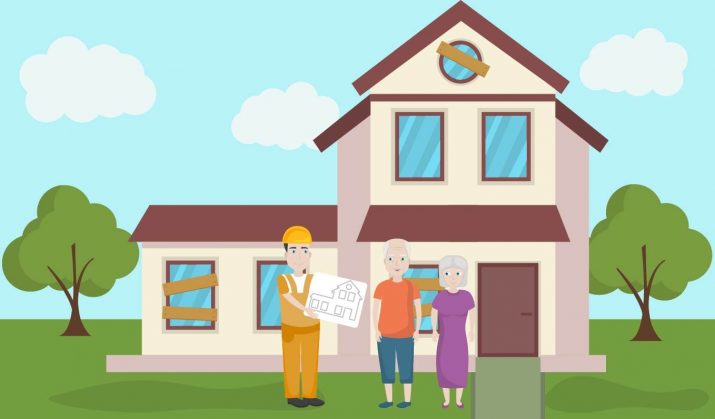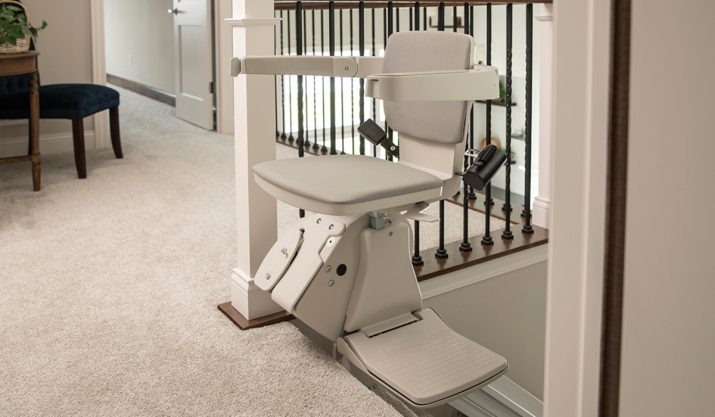Aging in Place Remodeling

Table of Contents
- Resources for Homeowners
- How Long Do You Plan to Live in Your Home?
- Who Can You Rely on to Modify Your Home?
- What Can a Certified Aging-in-Place Specialist Do for You?
- What Can a CAPS Professional Offer Homeowners?
- How Should You Modify Your Home to Meet Your Needs?
- Checklist: Choosing a Remodeler for Aging in Place and Universal Design Improvements
- How Do You Determine What Improvements Your Home Will Need?
In addition to housing our families and providing us with a sense of roots, our homes are also often the places where many families make some of their best memories. The longer we live in our homes, the more we can become attached to them, and for many Americans who are getting older, the thought of leaving their homes can be overwhelming.
While many adults age 45 and above plan to remain at home, most American homes are not designed for aging adults. According to a report by the Harvard Joint Center for Housing Studies, only 1% of these homes have features, such as entrances without steps, single-floor living, and doorways that are wide enough to provide accessibility for wheelchairs – design elements that are often necessary for people to remain in their homes.
Currently, there are about 46 million Americans over age 65, according to the Population Reference Bureau’s report, “Aging in the United States.” This number is expected to increase to 98 million by 2060. This makes remodeling a crucial step for many people as they plan for their future living arrangements.
To help meet the needs of consumers facing these remodeling projects, the NAHB Remodelers of the National Association of Home Builders (NAHB) collaborated with Home Innovation Research Labs, the NAHB 55+ Housing Council, and AARP, to develop the Certified Aging-in-Place (CAPS) program.
Hire a Certified Aging-in-Place Specialist and make your house a home for a lifetime. Learn how to earn the CAPS designation.
Resources for Homeowners
- Find a Certified Aging-in-Place Specialist in your area
- What is Design for Independent Living?
- What is Universal Design?
- Aging-in-Place Remodeling Checklist
- CAPS 101: Aging-in-Place vs. Universal Design
How Long Do You Plan to Live in Your Home?
If you are reaching your retirement years or if you are the adult child of a senior, you may be faced with making some tough decisions about living arrangements. According to AARP, nearly 90 percent of seniors would prefer to remain in their own homes as they get older. This is often referred to as “aging in place.” So, what should you do if you want to stay in your home and age in place, but you know that for whatever reason, you may not be able to do so without help?
Who Can You Rely on to Modify Your Home?
For many seniors, hiring a Certified Aging-in-Place Specialist (CAPS) to modify their homes to meet their changing needs may enable them to stay in their own homes and remain independent rather than move in with a relative or into an assisted living facility.
A CAPS professional can help you consider your options, make the choices that are best for you, and get through the remodeling process. CAPS graduates are required to adhere to a strict code of ethics, and they must maintain their designation through continuing education with programs and community service participation.
What Can a Certified Aging-in-Place Specialist Do for You?
A Certified Aging-in-Place Specialist is a professional who specializes in meeting the needs of seniors by helping them modify their homes so they can be safe, secure places for them to live. These specialists, who are often general contractors, designers, architects, or healthcare professionals, are certified through a program that teaches the skills necessary to assist seniors with choosing, designing, or making modifications that will enable them to age in place.
What Can a CAPS Professional Offer Homeowners?
CAPS professionals are trained to use strategies and techniques to design and/or build spaces that provide a safe, comfortable, barrier-free living environment. They offer a variety of services to help you stay in your home for as long as possible. Each CAPS graduate brings a different foundation of knowledge and background, and they will use this experience to approach your project. They are trained to:
- Understand the unique needs of seniors who wish to remain independent and age in place.
- Assist seniors in making decisions about home modifications.
- Find solutions to common problems.
Don’t forget that when you hire a Certified Aging-in-Place Specialist that you are paying for a service rather than a product. That means you are relying upon a CAPS professional’s personal expertise to help choose solutions for your home to allow you to remain independent. In the end, you will still need to hire a professional remodeler to make the decided modifications to your home.
How Should You Modify Your Home to Meet Your Needs?
Home modifications can range from simple fixes to major remodeling projects. If your home has more than one floor and you have mobility issues, you may want to consider adding a stairlift, home elevator, or relocating your upstairs bedroom downstairs. Those who may be using wheelchairs might want to have doorways widened or ramps installed outside. And many people may benefit from adding grab bars in bathrooms and nonslip flooring surfaces. After all, the bathroom is one of the most dangerous places for older adults.
Checklist: Choosing a Remodeler for Aging in Place and Universal Design Improvements
- Determine what your budget will be.
- Talk to your family, friends, and neighbors to get referrals for professionals they trust.
- Search the National Association of Home Builders (NAHB) Directory of Professional Remodelers or contact your local Home Builders’ Association.
- Check with the Better Business Bureau or your local Office of Consumer Protection.
- Verify any licenses or professional designations, such as CAPS, Certified Graduate Remodeler (GCR), or Graduate Master Remodeler (GMR).
- Ask the professional remodeler for a written estimate with detailed specifications of the work to be completed.
- Do your research and hire a remodeler with plenty of experience for the modifications you’re making to your home.
- Remember that you get what you pay for. The cheapest contractor may not necessarily be the best option for you.
How Do You Determine What Improvements Your Home Will Need?
To find out which improvements you will need, ask yourself the following questions.
- Are there areas of my home that are not accessible to me, such as an upstairs bedroom?
- Are there outside areas of my home that are currently dangerous for me?
- Is my kitchen set up to meet my needs?
- Am I concerned about mobility issues or falling?
- Do I need to make my bathroom safer?
- What is my budget, and how will I pay for the project?
- Can my insurance pay for any modifications?
- Will I need to acquire a home equity loan?
- Will other family members or friends benefit from these modifications?
- Will remodeling increase the energy efficiency of my home?
- Where can I find a professional who can help me with this project?
Learn more about CAPS and how to earn the CAPS designation.
Learn more about the Homes for Life Award.
***The award of any NAHB Education designation does not represent and should not be construed as a guarantee or certification of the quality of the designation holder’s work product. NAHB’s conferral of a designation represents only NAHB’s affirmation that the individual designation-holder completed the stipulated requirements of the respective designation program.






